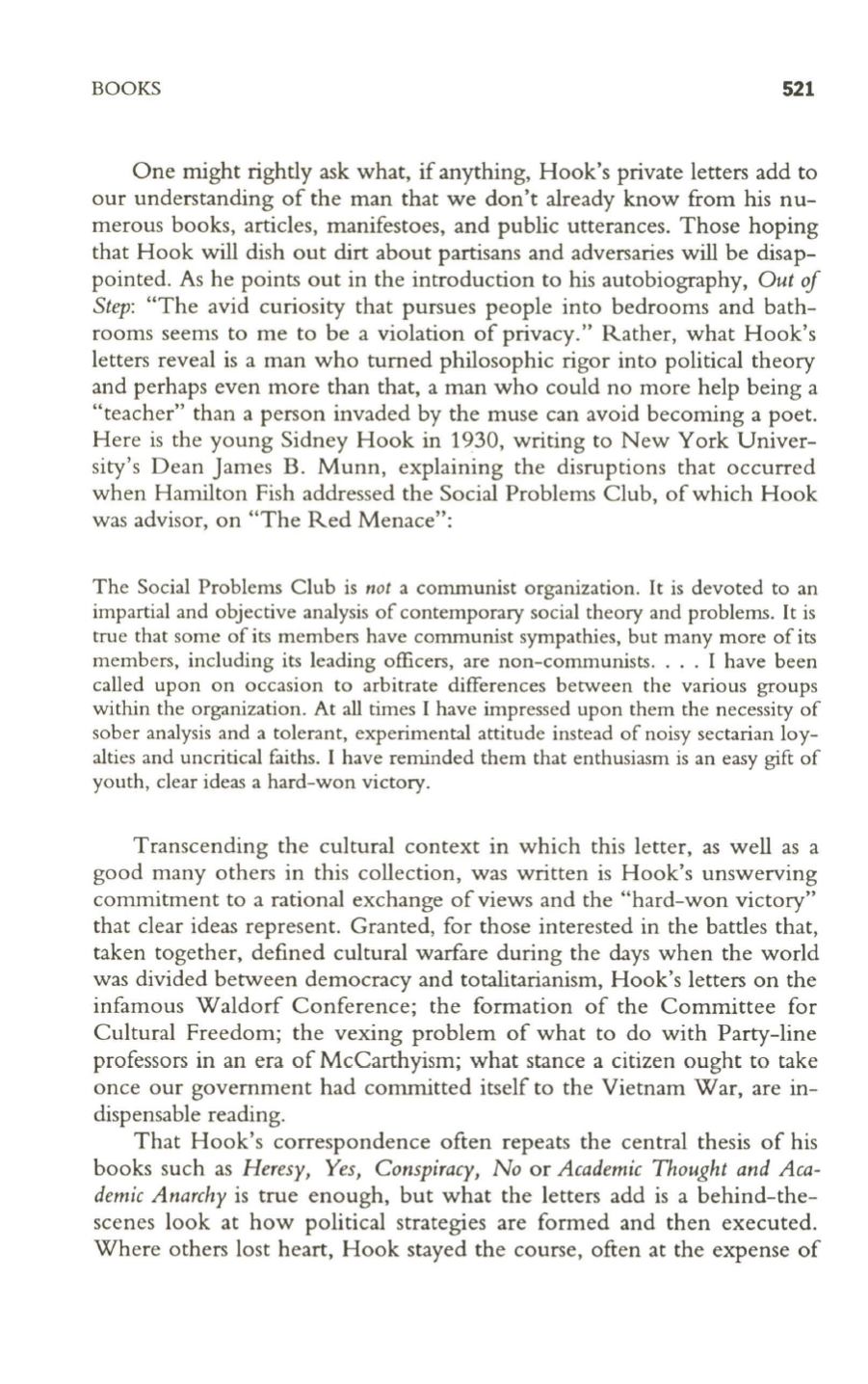
BOOKS
521
One might rightly ask what, if anything, Hook's private letters add to
our understanding of the man that we don't already know from his nu–
merous books, articles, manifestoes, and public utterances. Those hoping
that Hook will dish out dirt about partisans and adversaries will be disap–
pointed. As he points out in the introduction to his autobiography,
Out
if
Step:
"The avid curiosity that pursues people into bedrooms and bath–
rooms seems to me to be a violation of privacy." Rather, what Hook's
letters reveal is a man who turned philosophic rigor into political theory
and perhaps even more than that, a man who could no more help being a
"teacher" than a person invaded by the muse can avoid becoming a poet.
Here is the young Sidney Hook in 1930, writing to New York Univer–
sity's Dean James B . Munn, explaining the disruptions that occurred
when Hamilton Fish addressed the Social Problems Club, of which Hook
was advisor, on "The Red Menace":
The Social Problems Club is
not
a communist organization. It is devoted to an
impartial and objective analysis of contemporary social theory and problems. It is
true that some of its members have communist sympathies, but many more of its
members, including its leading officers, are non-communists... . I have been
called upon on occasion to arbitrate differences between the various groups
within the organization. At
all
times I have impressed upon them the necessity of
sober analysis and a tolerant, experimental attitude instead of noisy sectarian loy–
alties and uncritical faiths . I have reminded them that enthusiasm is an easy gift of
youth, clear ideas a hard-won victory.
Transcending the cultural context in which this letter, as well as a
good many others in this collection, was written is Hook's unswerving
commitment to a rational exchange of views and the "hard-won victory"
that clear ideas represent. Granted, for those interested in the battles that,
taken together, defined cultural warfare during the days when the world
was divided between democracy and totalitarianism, Hook's letters on the
infamous Waldorf Conference; the formation of the Committee for
Cultural Freedom; the vexing problem of what to do with Party-line
professors in an era of McCarthyism; what stance a citizen ought to take
once our government had committed itself to the Vietnam War, are in–
dispensable reading.
That Hook's correspondence often repeats the central thesis of his
books such as
Heresy, Yes, Conspiracy, No
or
Academic Thought and Aca–
demic Anarchy
is true enough, but what the letters add is a behind-the–
scenes look at how political strategies are formed and then executed.
Where others lost heart, Hook stayed the course, often at the expense of


